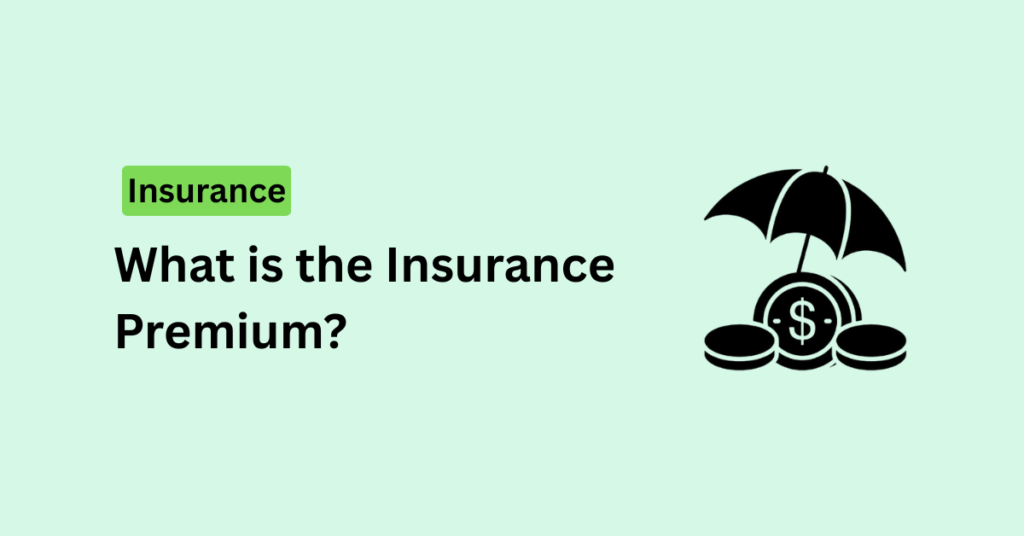An insurance premium refers to the amount paid for coverage to an insurance company. A policyholder must pay premium amounts for life, health, automotive, property insurance to maintain a particular level of coverage.
The premium you pay is viewed as a form of risk management, since for a stipulated fee, the insurance company agrees to pay you a certain amount in case you face losses. Knowing how premiums function helps you appreciate the value of the protection provided and enables you to make sound decisions that suit your pocket.
Let’s take an example, when it comes to purchasing car insurance, understanding the factors influencing premium rates would be beneficial in acquiring a well-priced yet extensive cover.
Also Read: Insurance Decoded: A Buying Guide for Middle-Class Families
How are Insurance Premium Calculated?
Your insurance premium has numerous determinants. Insurance providers will evaluate the risk that you present using the following factors:
- Coverage type: Comprehensives plans have higher premiums when compared to basic plans.
- Personal Information: Factors such as age, gender and health can influence life and health insurance premiums.
- Location: residing in areas prone to natural disasters may increase home insurance premiums
- Claims History: History of frequent claims can increase risks of higher premiums.
- Credit Score: In some areas, insurers use credit score to set premium levels.
When searching for life insurance quotes, people in their 20s generally have the lowest premiums because the insurance risk is lower.
Types of Insurance Premiums
The various insurance premiums may be structured in different ways based on the policies:
- Fixed Premiums: These remain constant through the entire duration of the policy.
- Variable Premiums: These may change based on investment results or outcomes, common for some life insurance policies (often recorded in life policies).
- Single Premium: This is a one-off payment which pays for the policy for its entire duration.
Why Do Insurance Premiums Vary?
The individual profile of each customer is what assigns a certain value on insurance to them. Insurers assess the probability of a certain claim being made to determine the premium amount. The greater the figure, the greater the premium for insurance.
To illustrate, a car driver who has been involved in several accidents as a constant will pay more for a vehicle insurance than a driver who has never been involved in any accident.
In the same breath, looking at home insurance policies, houses located in areas with likelihood of floods would be charged higher premiums because they are more at risk.
How To Reduce Your Insurance Premium
Using specific strategies can help reduce your insurance premium, such as:
- Purchase Policies Together: The majority of insurers will reward clients who purchase both home and auto insurance with a discount.
- Raise Your Deductibles: With a higher deductible the premium paid is reduced.
- Good Credit Score: A better credit scores makes the premium lower.
- Review Coverage Annually: Personalize your plan to avoid overspending on your policy.
For instance, cheap car insurance can be obtained if you maintain a clean driving record coupled with higher deductibles.
The Importance of Paying Your Premium on Time
Paying on time guarantees uninterrupted coverage for your insurance policy. Nonpayment can result in policy cancellation which exposes you to risk without protection. Certain companies may provide grace periods for payments, but they are best avoided if you wish to maintain continuous protection.
This is especially important with a health plan as a lapse could result in enormous out-of-pocket expenses during a medical emergency.
Conclusion
Managing your finances alongside ensuring you are sufficiently protected requires knowledge of your insurance premium. Being aware of how premiums are set and what influences them can enable better decisions tailored to your finances.
When purchasing life, auto or health insurance, take initiative and be well informed to get optimal coverage at the most affordable premium.
Also Read: What Is Insurance? Coverage, Premiums, and Claims
Also Read: What is Term Life Insurance?

